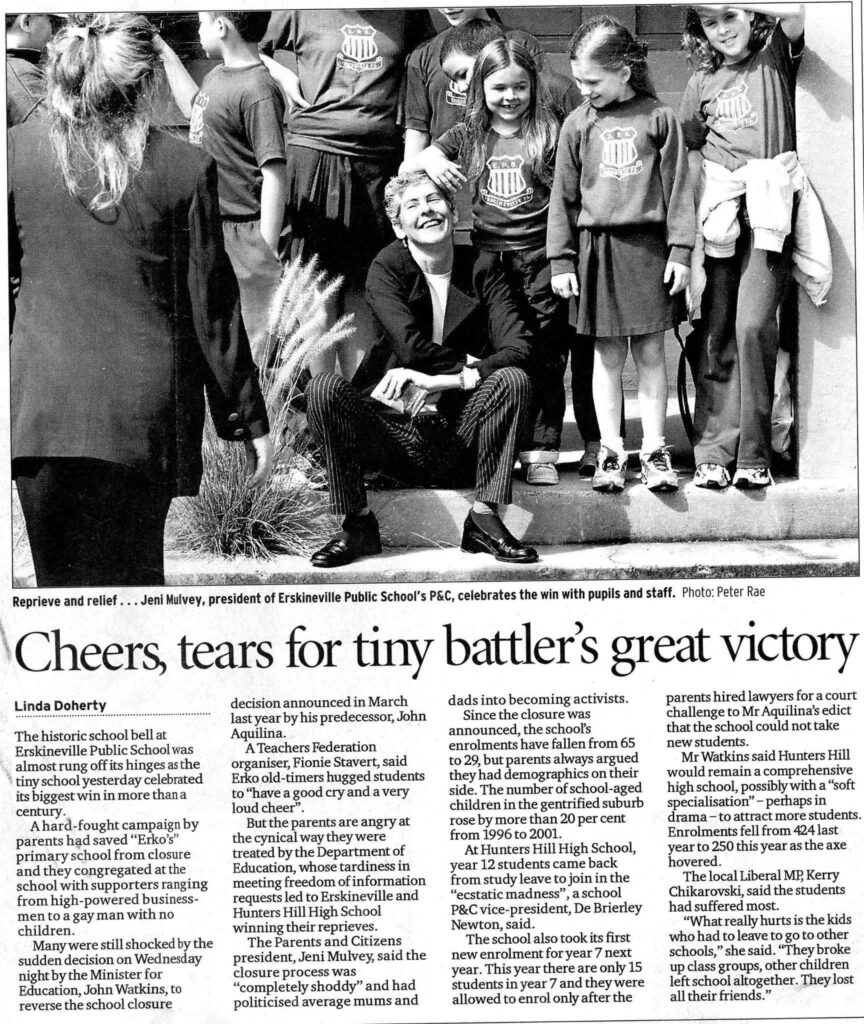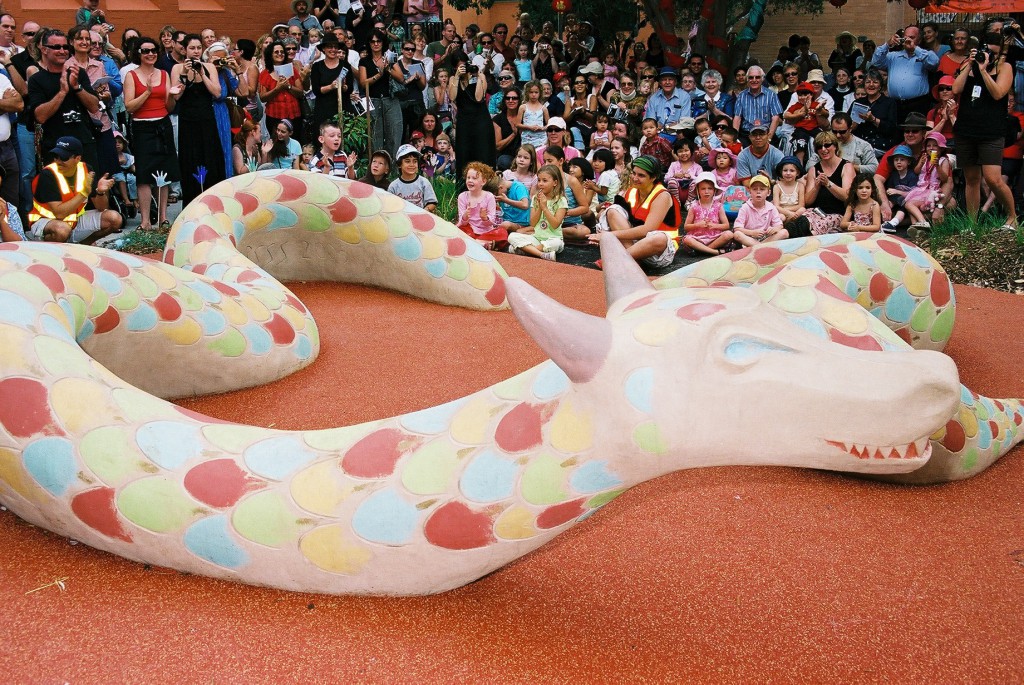The organisation I have chosen to centre my project around is Erskineville Public School. After writing an email to the school, and then having a follow-up call, I was told the school was not interested. However, after speaking to Sophie, I was told it would be okay for me to create a project about the school without their contribution or direct engagement as I was an alumna of the school. Although I am disappointed that I won’t be able to volunteer and work directly with the school I am sure that my connections with past and present members of the school community will still allow me to create an engaging and worthwhile project.
After speaking to family and friends in my local community of Erskineville, I understand there is a wealth of resources and historical archives available concerning the school and its history. Given the abundance of these resources, as well as the strength and resilience of the Erskineville community, I feel a multi-media video will best relay the important history of the school whilst simultaneously giving a voice to members of the local community.
Founded in 1882, Erskineville Public School has a rich history. In particular, I would like to draw attention to the strength of the Erskineville community and their relationship to the school. In March 2001 (a few years prior to my enrolment) it was announced by the then education minister John Aquilina that the school would be closed. However, the Erskineville Public School Parents and Citizens Association (P&C) obtained Freedom of Information documents which revealed that a year earlier the NSW government was already planning to close the school (amongst others) and failed to officially notify parents. Over a year later, and after the closure process had “politicised average mums and dads into becoming activists” as the P&C’s president Jeni Mulvey put it, it was announced by the education minister at the time, John Watkins, that the school would remain open. Since the closure had been announced, the school’s enrolments had fallen to 29, seen in the above photo. However, as seen in the photo below, during my time there the number of school enrolments had risen dramatically and were continuing to do so. I would love to interview some of the students and parents who were part of the struggle to keep the school open and see how they viewed and view their experiences and relationship with the school’s history. I would also like to interview those who arrived after this historic moment and helped to strengthen the school community.

The school underwent numerous landscape changes during my time there, including the creation of the garden amphitheatre and the rainbow serpent sculpture under the guidance of Tom Bass. It would be highly rewarding to interview those who helped implement these changes and whether they felt they were actively contributing to the school’s history.

There are a few challenges I will have to overcome while undertaking this project. Firstly, I must pinpoint the parts of Erskineville Public School’s history which are the most important and relevant to both myself, and past and present members of the school community. I will also need to develop my skills in video and filmmaking, as this is an area, I have little practice in. However, I know previous history students have written about the software they used to create multimedia videos in their blog posts and so these will be an extremely valuable resource on which to draw on. Rather than benefiting the organisation as a whole, I believe this project will benefit the school’s community members on an individual, familial and/or relational level, allowing people to critically engage with history and what it means to them, their family and their friends.

My name us Helene Crane Vettas (nee Hunt). I was born 1.12.1943 and attended Erskineville Public School from January 1949 till December 1956. My brother was 1 year older and also attended Erko.
I only have 1 photo of the school years. I had 4 other friends who also attended at the same time I would love to chat.